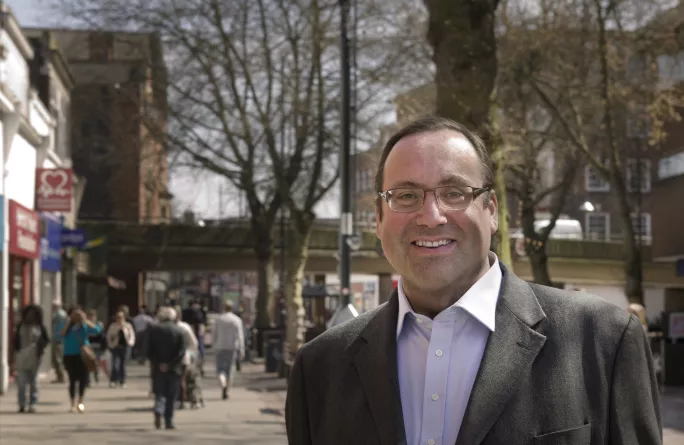Exclusive: Tory vice-chairman worried Gove’s unqualified teachers policy will let schools ‘hire on the cheap’
A senior figure in the Conservative party has admitted his “worry” that Michael Gove’s decision to allow schools to hire unqualified teachers could be used by some heads as an excuse to “hire on the cheap”.
In a letter seen by TES, Tory vice-chairman Richard Harrington warns the education secretary about concerns raised by teachers in his Watford constituency over the controversial policy, and concedes that they “have a valid point”.
The move to allow schools and colleges to recruit unqualified teachers has been strongly opposed by Labour, with shadow education secretary Tristram Hunt insisting they “should not be in the classroom”.
The Tories’ coalition partners, the Liberal Democrats, have also criticised the policy, with Deputy Prime Minister Nick Clegg arguing that qualified teacher status should be mandatory for teachers “in all our schools”.
But, as tens of thousands of teachers prepare to take part in the NUT’s strike today, the revelation that a leading Conservative has expressed reservations is likely to cause embarrassment for Mr Gove.
In a letter sent to the education secretary earlier this month, Mr Harrington (pictured) insists that heads are “sensible enough people to make proper decisions about who they hire”, and says that there could be some cases where “outstanding” unqualified individuals could be the best person for the job.
However, he goes on to recount a recent meeting with teachers in Watford, and concedes that their concerns over unqualified teachers “did worry me”.
“Their argument,” he writes, “is that instead of this being used as a tool to bring in experienced individuals in certain areas for the benefit of education, that it will be used as a tool to effectively ‘hire on the cheap’ and fill classrooms with unqualified teachers not because they have valuable experience but because they are lower cost.
“I would hope that headteachers would not do this of course, but [I] do think it is a valid point which should be given proper consideration.”
Mr Harrington goes on to ask Mr Gove: “Has any assessment been made of the unqualified teachers who have actually been hired, to evaluate whether they genuinely have expertise in a particular field?”
The intervention was welcomed by Kevin Brennan, Labour’s shadow schools minister. “Even the Tory party vice-chairman is warning that the prime minister’s decision to allow unqualified teachers into our classrooms is damaging,” he said.
“While David Cameron and Michael Gove pursue their policy to ‘hire on the cheap’, as the Tory vice-chair points out, Labour will ensure that every teacher becomes qualified and that teachers are re-validated throughout their careers.”
Kevin Courtney, deputy general secretary of the NUT, claimed that members were increasingly gaining sympathy from MPs of all parties for their concerns about current education policy. “There are signs that this is happening even within the Conservative party,” he added.
In a statement to TES, Mr Harrington said that he had passed on his constituents’ concerns to Mr Gove “as is my duty as their Member of Parliament”.
“I am confident that Michael will reply with a satisfactory answer for me, as he always does. Across Watford, I have seen first-hand the massive improvements in education that have come about as a result of Michael’s efforts to allow headteachers the freedom to act in the best interests of their schools.”
A Department for Education spokesman said: “Independent schools and free schools can already hire brilliant people who do not have qualified teacher status (QTS). We have extended this flexibility to all academies so more schools can hire great linguists, computer scientists, engineers and other specialists who have not worked in state schools before.
“We expect the vast majority of teachers will continue to have QTS. This additional flexibility will help schools improve faster, and give head teachers the freedom to hire the person best suited to their school.”
Keep reading for just £1 per month
You've reached your limit of free articles this month. Subscribe for £1 per month for three months and get:
- Unlimited access to all Tes magazine content
- Exclusive subscriber-only stories
- Award-winning email newsletters




